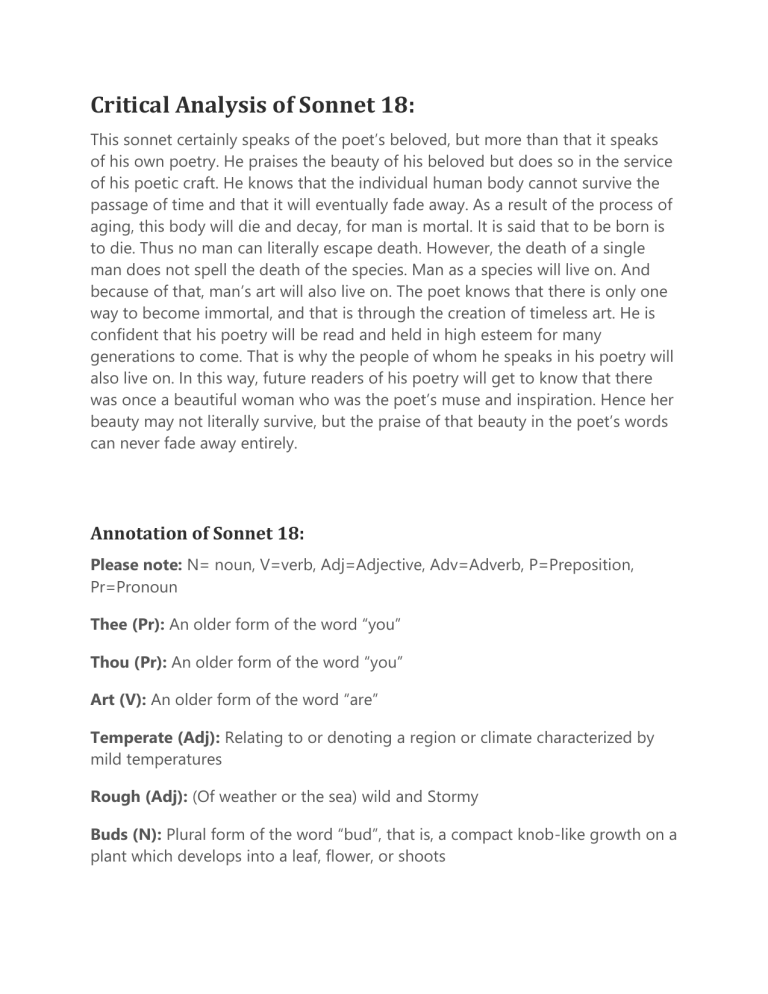

Lines thirteen-fourteen the narrator is speaking to all mankind stating that as long as men live and can read the poem will continue to be alive. Note how the tune of the poem begins to change in line nine-twelve from a happy tone at the beginning of the poem to a serious tone. In conclusion the "lines to time" are a metaphor for verse, which will eventually protect the lover and "eternal”, is a similarity with "eternal summer" in line nine. Death is then alive, as the supervisor of the shadow.
#Sonnet 18 by william shakespeare full
This full analysis includes a critical look at the poem's rhythm, rhyme and syntax. The lover life is described in a metaphor as a "summer," and then the beauty is labeled in another metaphor as a product than can be held or allocated. 'Sonnet 18,' one of Shakespeare's most popular love poems, is a tribute to a 'fair youth' in which the poet compares his lover to a summer's day and finds the lover more lovely. Initially, the poem begins with a question “Shall I compare thee to a summer's day?” which is a verbal inquiry, as the narrator doesn’t care how or whether …show more content… The lines are directed to how the narrator is going to protect the friend or lover from the fate of vanishing away. This essay will examine " Sonnet 18" by William Shakespeare and discuss how he used literary elements in creating this short story.
.jpg)

"Sonnet 18" is committed to admire a friend or lover, usually known as the "fair youth." The sonnet itself guarantees that this person beauty will have remained sustained even through death the lines of verse will continue to be read by future generations when a speaker, poet, and an admirer are no more, maintaining the correct illustration alive through the influence of poetry. In "Sonnet 18", William Shakespeare offers a unique perspective on the comparisons that were popular in the sonnet times. Show More “Sonnet 18" by William Shakespeare it may be the best well-known of all sonnets.


 0 kommentar(er)
0 kommentar(er)
